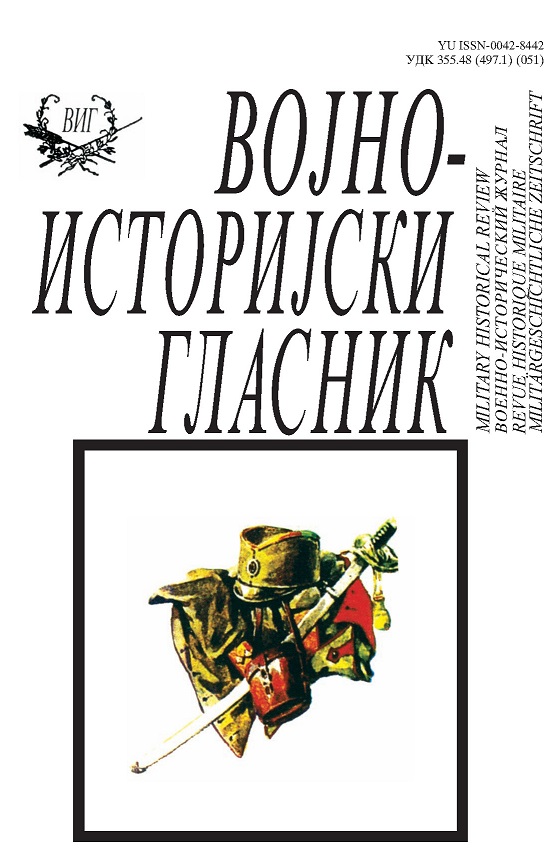,,Смем ли се ја, син таквог оца осрамоћен вратити у Србију“: Александар, син Живојина Мишића у руском јункерском училишту
“How can I, the son of such a father, return disgraced to Serbia”, Aleksandr, son of Zhivoin Mishich, in the Russian Junker school
Author(s): Vasily Borisovich KashirinContributor(s): Dalibor Denda (Translator)
Subject(s): Military history, Political history, International relations/trade, Military policy, History of Education, State/Government and Education
Published by: Institut za strategijska istraživanja
Keywords: Aleksandr Mishich; Zhivoin Mishich; chethnic movement; Yugoslavia; military-educational policy; military education;
Summary/Abstract: This article looks at an interesting and as yet completely unknown episode in the life of Aleksandr Mishich, son of a prominent Serbian commander field-marshal Zhivoin Mishich (1855-1921). Aleksandr Mishich (1891-1941) served as an officer in the Balkan wars of 1912-13 and in the First World War. In 1941 he died heroically as one of the leaders of the chethnic movement in Yugoslavia. One of the blank pages in his biography is the time he spent in Russia from 1908 to 1912, where he tried to receive a military education. This article, based on previously unknown documents from the Russian State Military History Archive and the Foreign Policy Archive of the Russian Empire looks at how Mishich and his two Serbian friends joined the Vilna Infantry Junker school, their subsequent expulsion, acute conflict with the college’s authorities and the long and unsuccessful efforts of the three Serbs to obtain a review of their case from the military-bureaucratic machine of the Russian empire. The article also examines the discussions which took part between Russian authorities at interdepartmental level concerning the education of southern Slavs in military institutions of the Russian empire, which coincided with Mishich’s presence in Russia. The difference in opinion of representatives from the Russian military and diplomatic institutions on the problems of raising the effectiveness and the goals of Russian military-educational policy towards southern Slavs is shown. Also covered are the circumstances regarding the preparation of the Rules of admission of subjects of south Slavic states into Russian military-educational institutions, approved in 1912. This article can be of interest to all those interested in the life of field-marshal Zhivoin Mishic and his family, as well as in the questions of Russo-Serbian cooperation in the sphere of military education at the start of the 20th century.
Journal: Vojnoistorijski glasnik
- Issue Year: 2008
- Issue No: 1
- Page Range: 107-143
- Page Count: 37
- Language: Serbian

